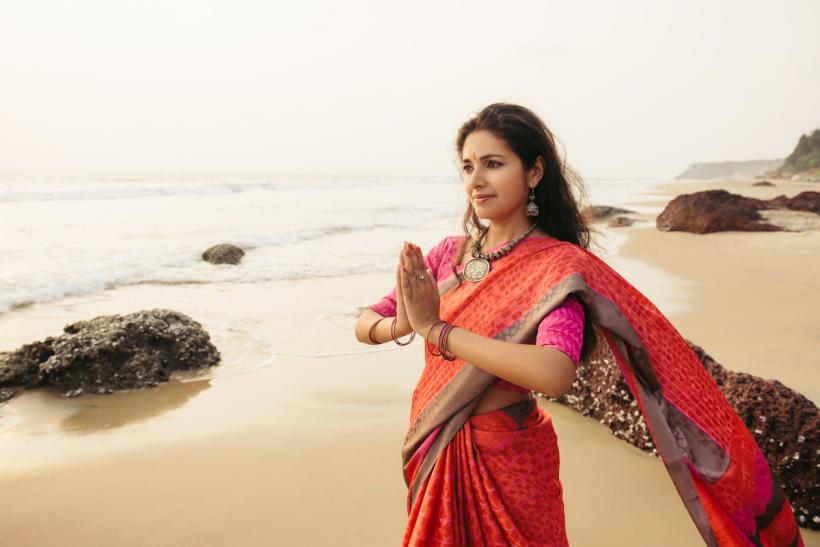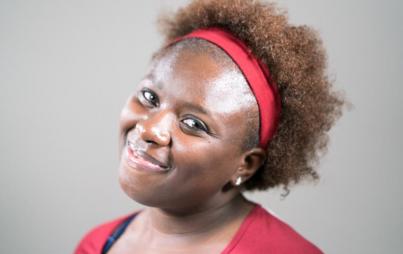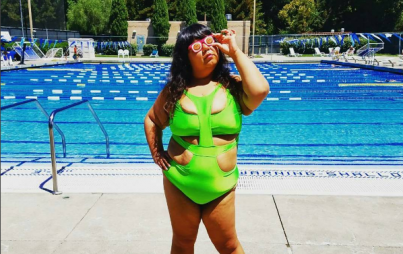
People who have their names anglicized don’t want to deal with the discomfort of saying their birth names out loud over and over until it is eventually pronounced correctly.
I understand being unable to pronounce a certain word because it’s actually difficult to pronounce. However, many people flat-out refuse to learn how to pronounce foreign names.
I remember my first day of school in Canada very clearly.
It was in early October of 2004, and my family had just emigrated from India. I got to school early and hung around the classroom with the teacher, until one by one, students started to trickle in.
They all looked at me from a distance, understanding that I was new. Finally, one of them came up to me and asked me what my name was.
I panicked. I was only in Grade 3 and had been in Canada for all of two weeks, but I was afraid that these kids might make fun of the pronunciation of my name. So, I said “Shelley,” remembering the name from a book I had read earlier, figuring it was close enough.
There is something disturbing about a child as young as 8 being afraid to say her own name out loud.
The proper way of saying my name is “SHUHY-lee,” but I was afraid that it sounded too foreign. I’m sure everyone knew that my name wasn’t pronounced like “Shelley.” How could it, with a spelling like S-H-A-I-L-E-E?
We are all so used to names being anglicized that we don’t question the pronunciations set in front of us, even if they don’t really make sense.
All the other brown kids in my class had their names anglicized too. With time, I learned to call them by their anglicized names rather than the real Hindi, Punjabi, or Arabic pronunciations that came to me instinctively. Before I knew it, anglicizing names become a predisposition.
A lot of people call me Shay now, but it’s not my name.
As I got older, I dreaded the days that my friends would come over and hear my parents yell my name — my real name — up the stairs. I was embarrassed by it. When a friend who was of South Asian descent told me, “I know that your name is really pronounced like 'SHUHY-lee,'” I told her she was wrong.
I have a clear memory of a day when a South Asian substitute teacher took attendance for my class and pronounced every single brown kid’s name correctly. The class snickered while one by one, the brown kids sank lower in our seats as we were reminded that “TJ” was really Tejinder, “BAV-neat” was really Bhavneet, and “Tamer” was Taimur. Since I knew where my name fell on the attendance sheet, I didn’t even let her finish calling out my name. I yelled “HERE!” hoping to get it over with as soon as possible.
On the first day of Grade 9, my homeroom teacher called me “Shay-lee,” and I didn’t bother correcting her. From then on, everyone knew me as “Shay-lee.” In my first year of university, I introduced myself as “Shay” because I thought it was cuter than “Shay-lee.” A lot of people call me Shay now, but it’s not my name.
Names are important because they reflect unique cultures, histories, religions, and lineages. Taking someone’s given name and changing it is one of the many ways that people (namely people of color) are whitewashed. The anglicization of “foreign” names — the practice of taking names and turning them into something English — is a slow and sinister form of identity erasure.
People might think that it’s not a big deal for names to become anglicized, and that culture can still survive if Harjit becomes “Harry." Assimilation is encouraged in today’s society, but when thinking about assimilation, it is important to think about the standards of normalcy in our society: what they are and where they come from. Assimilation in our society requires us to conform to Eurocentric standards of names, languages, accents, clothing, food, and culture that are considered the “norm” and the base of our society.
Fair enough — if you go abroad, you should respect that nation’s cultural practices. However, in places like North America, where diversity is obvious and often touted, why are non-European names and cultures disrespected?
If we live in a society that marks most non-European and American cultures as “different” in the name of cultural assimilation, why would anyone want to be proud of their “Otherness”? The erasure of personal and cultural identity is the way in which colonial countries hold their power and hegemonic influence.
People who have their names anglicized don’t want to deal with the discomfort of saying their birth names out loud over and over until it is eventually pronounced correctly.
I understand being unable to pronounce a certain word because it’s actually difficult to pronounce. However, many people flat-out refuse to learn how to pronounce foreign names. My friend Nourhan goes by “Norah” because people wouldn’t bother learning how to pronounce her real name. Once, a man who could not pronounce my cousin Chintan’s name on his first try told him he would just call him “Clinton” instead.
It’s technically true that I anglicized my own name, and I sometimes blame myself for not being brave enough to teach people how to pronounce Shailee. But in the larger picture, it’s clear to me that I did it because I was afraid. It’s undeniable that we live in a society that is uncomfortable with most accents and the way that “foreign” names sound — especially those that are not Eastern European. It’s been like this for ages.
It’s why Bobby Jindal goes by “Bobby” instead of his birth name, Piyush. It’s why my driving instructor asks people to call her “Fairy” instead of Fakhra. The power of anglicization makes our given names something that we carry with shame and burden. People who have their names anglicized don’t want to deal with the discomfort of saying their birth names out loud over and over until it is eventually pronounced correctly. Most of us are too tired to deal with that every time we meet someone new.
As an immigrant and a woman of color, I’ve had to give up a lot of parts of my identity to comfortably assimilate into North American society. I was so determined to lose my accent and learn how to speak Canadian English that I forgot how to speak the three Indian languages I was fluent in before.
I was so afraid of people making fun of my name that I changed it again and again, but I’m taking it back.
To paraphrase Uzo Aduba’s mother, if they can learn to say Tchaikovsky and Michelangelo and Dostoyevsky, they can learn the pronunciations of non-European names as well.
I’m not “Shelley” or “SHAY-lee” or “Shay Koran.” I’m Shailee Koranne.




![[M]any doctors aren’t properly educated on matters of sexual health. Image: Thinkstock. [M]any doctors aren’t properly educated on matters of sexual health. Image: Thinkstock.](/sites/default/files/styles/profile/public/images/article/2019-02/ThinkstockPhotos-526355961.jpg?itok=qauD1qd9)



